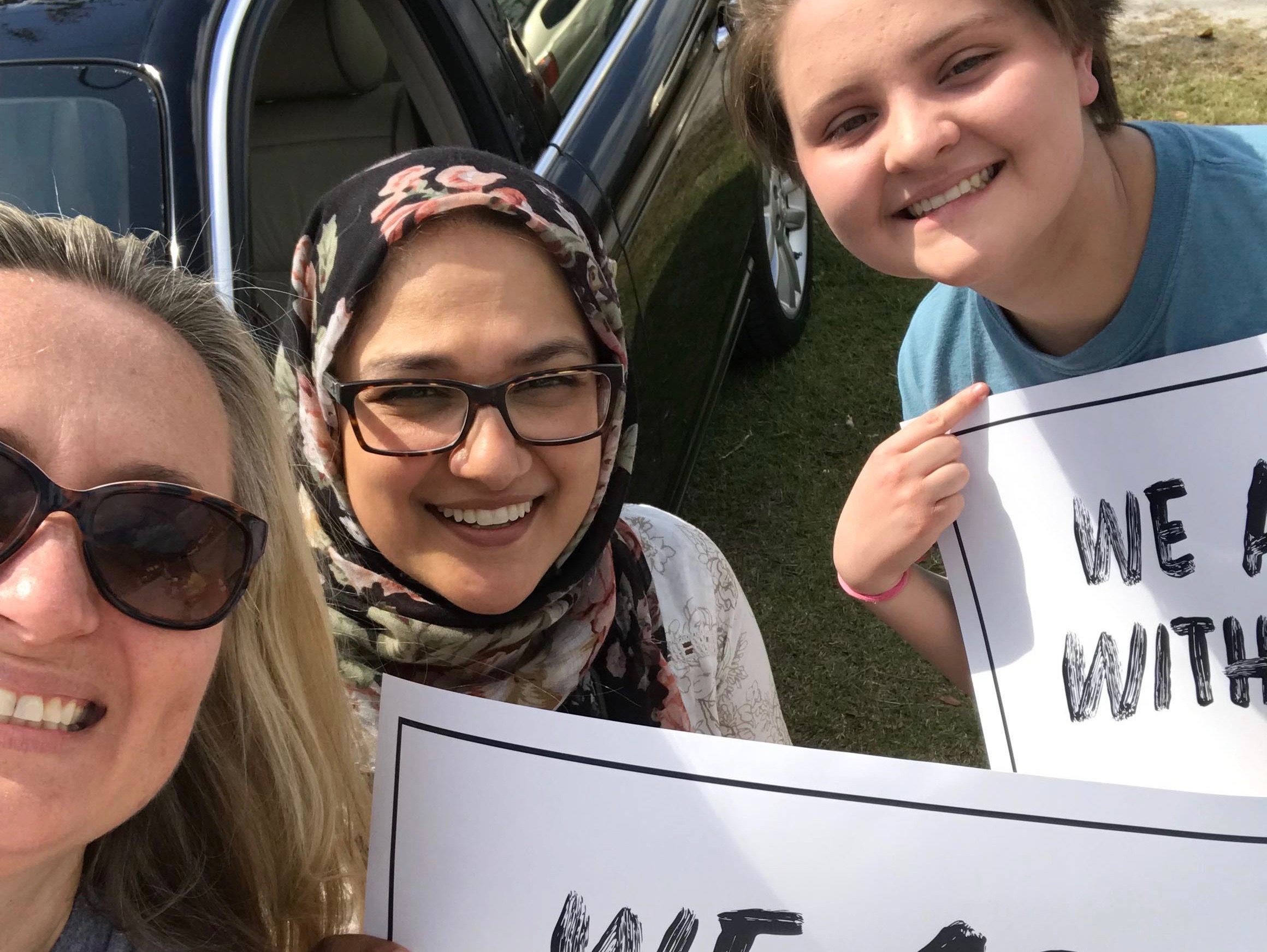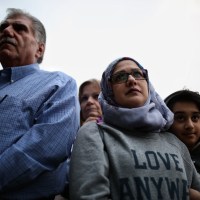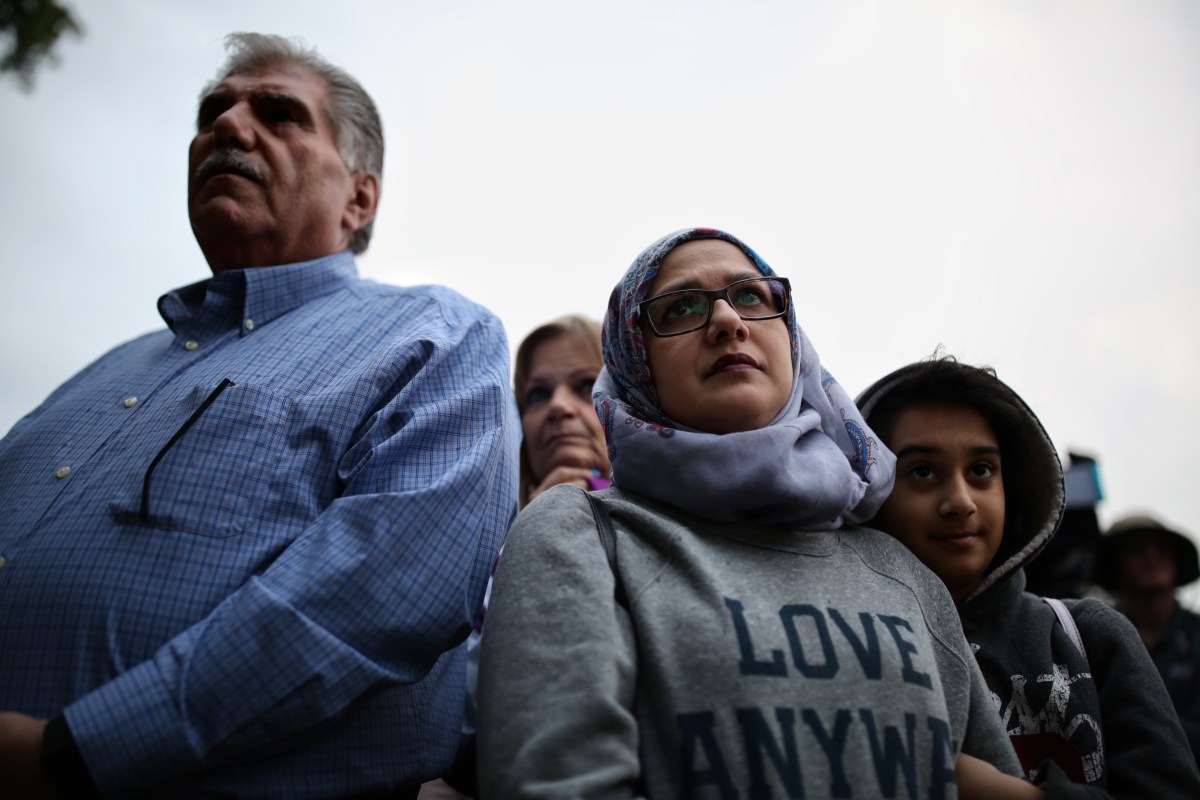Sadness and fear.
That’s how I began my day on Friday, March 16, 2019. Part of me wanted to go back to bed, pull the covers over my head and cry. But another part of me was determined to get up, to go to Friday prayers at my mosque in Orlando, Florida. I wanted to show my kids that it’s okay to be sad, it’s okay to be fearful—but to not let it debilitate us.
I don’t think anyone in Christchurch, New Zealand felt sad or afraid as they got ready for prayers at their mosque only a few hours before me. But they went with their families, just like me, to pray, to be with their community, to connect with God.
I rushed to get my kids ready to go, making sure they grabbed their hijabs. The Muslims in Christchurch probably rushed, too. Busy, frantic moms just like me, with kids on spring break, just like mine. Except they weren’t sad and they weren’t fearful.
As I walked up to my mosque I was warmly greeted by friends and strangers holding signs that read, “We are with you” and “Muslims are our brothers and sisters” and “We love you. My tears of sadness and fear mixed with tears of gratitude and hope. Strangers had stepped into the unknown, to support me and my Muslim community with kindness and love.

The next day our city held a vigil and healing circle. It was heart-wrenching. Our Orlando community has felt sadness and fear before; the Pulse shooting was just under three years ago.
 A mom of a Pulse attack victim spoke about her sadness and fear as she grieved for her son. She said that the killers in Orlando and in New Zealand, despite being different skin colors, shared a lot in common. They both shared a lack of love in their life, and festering, ugly hate that took the innocent lives of others.
A mom of a Pulse attack victim spoke about her sadness and fear as she grieved for her son. She said that the killers in Orlando and in New Zealand, despite being different skin colors, shared a lot in common. They both shared a lack of love in their life, and festering, ugly hate that took the innocent lives of others.
Another Pulse survivor spoke, remembering attending a vigil for his two best friends, breaking down as he saw their picture. He said someone came from behind and hugged him, whispering, “You are loved; we are with you,” over and over. When he turned around to hug back, it was a hijabi Muslim woman who held him.
A stranger that gave him hope and love in one of his darkest moments. A complete stranger. I hope to be that person to people who are hurting.
You might ask, “What can we do?” My answer is simple. Reach out. Be the stranger who shows up for others. Be the neighbor who reaches to the marginalized. Venture into the unknown—it’s beautiful there.
Be the one who loves anyway, in the midst of sadness and fear.
That’s what I plan on doing.
Peace.

Many of you turned out Friday to show love and solidarity with your Muslim neighbors. But we don’t have to wait for the next tragedy or the next terror attack to live like we belong to each other.
What if the extraordinary moments of connection that happened Friday were ordinary? What if they could happen every month or every week? What if they were simply a part of how we live?
Don’t let Friday be a one-time thing. Don’t wait for the next tragedy to show up on the frontlines in your community. You can join Saadia and others like her as part of The Frontline. You could be part of a local gathering of people from all backgrounds and identities, who choose to love anyway, who engage in relationship and service together.
We can unmake violence. We can cultivate community as an antidote to polarization. We can pursue peace through action—together.


